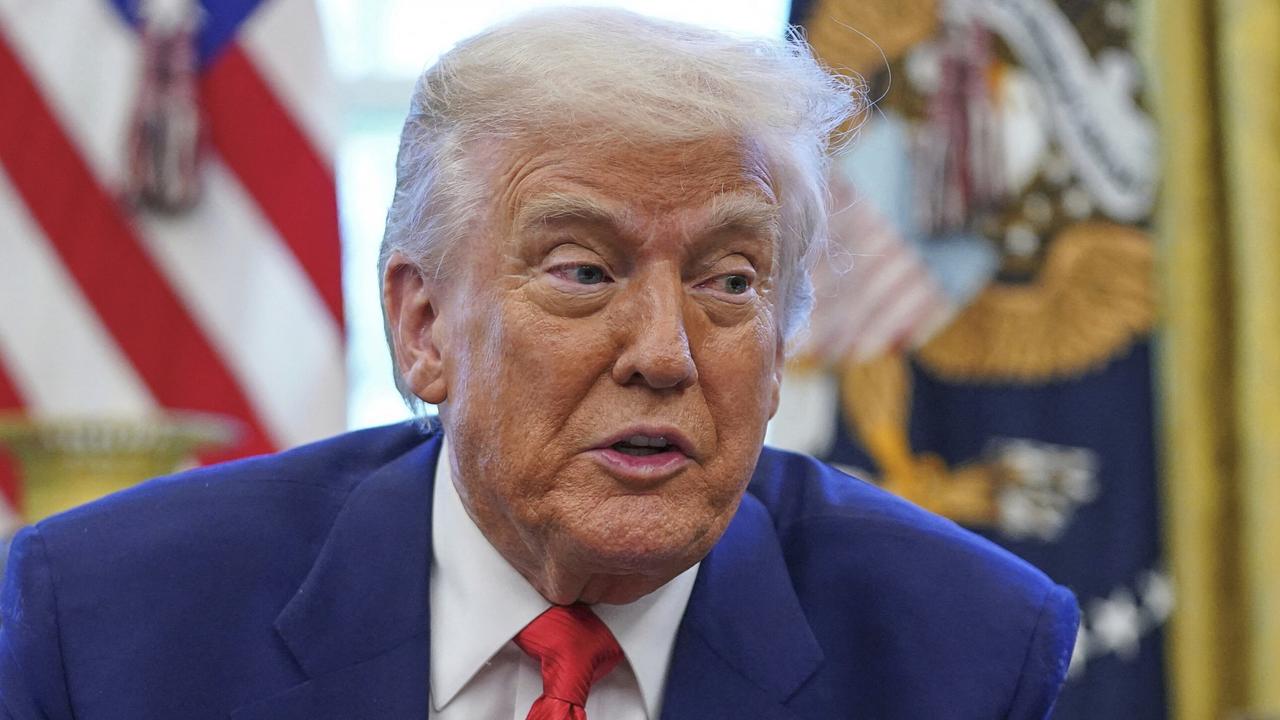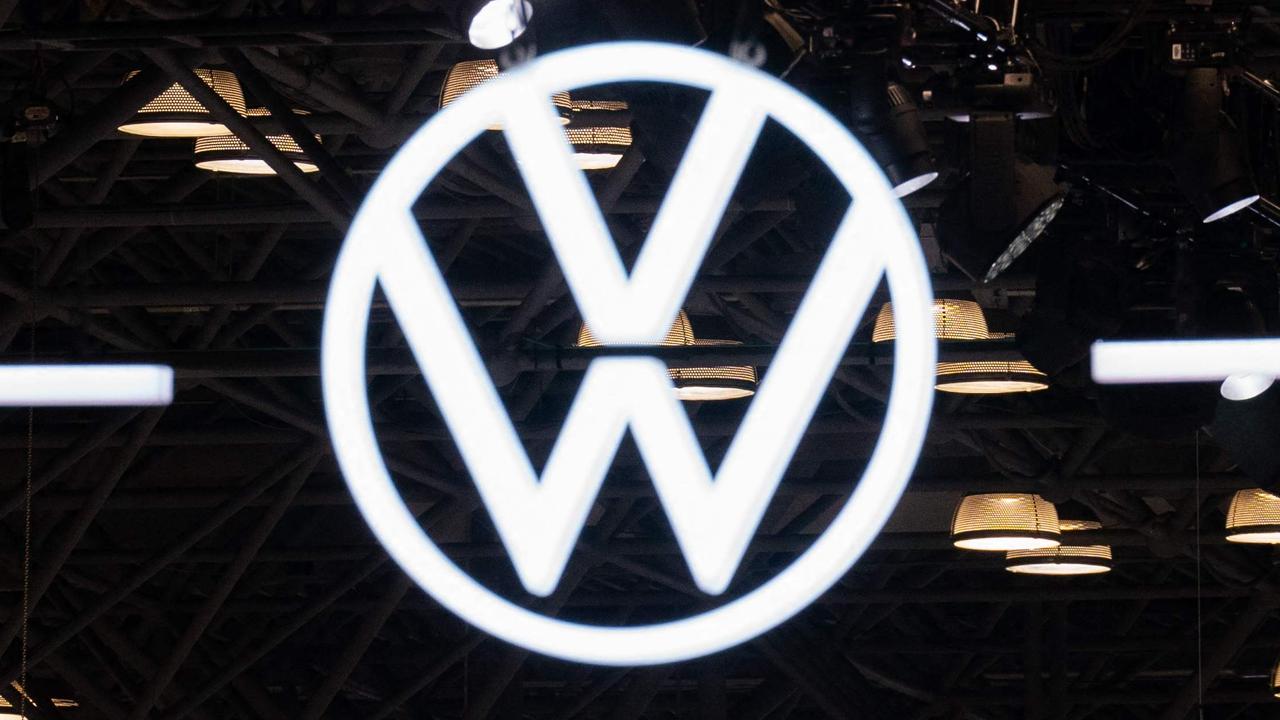British public in the dark about what will happen to their prime Minister after Brexit vote
It’s been called the biggest parliamentary vote since the second world war - and it is sure to claim some victims, including possibly the prime minister.

British Prime Minister Theresa May could play a high risk game and force a second vote on her Brexit plan if it is defeated as expected in a crucial vote tonight (local time).
The vote has been called the most crucial in the UK’s parliament since World War II and is one Mrs May will almost certainly lose, possibly with more than 100 of her own Conservative Party colleagues defying her and rejecting the deal she and European Union leaders thrashed out that set the terms of the UK’s departure from the economic and trading bloc it has been part of more than 40 years.
British newspapers were today divided about what would happen if and when the deal is rejected by the House of Commons. The right-leaning Daily Telegraph quoted sources within Cabinet saying she would have to resign if she lost by a heavy margin. The paper said she was expected to make a statement on her future soon after the vote.
Meanwhile, the top-selling The Sun, said Mrs May could try and force through a second vote after a defeat once she went back and gained new concessions from the EU. Both Mrs May and German Chancellor Angela Merkel believe the EU could agree to last minute concessions once the deal had been rejected - and as a no deal scenario that would be damaging to both sides became a real reality.
A senior Government figure said the PM and Mrs Merkel agreed there needs to be “a bloodletting moment” first, The Sun said.
A Cabinet meeting is being held this morning where she reportedly would be told she would lose even more support if she softened her deal even more to get it across the line.
The meeting promises to be fiery, as it will include fierce debate on what the Plan B should be. Some ministers are opposed to holding a second vote and have urged her to try and strike a different deal that would be acceptable to opposition MPs - the problem is though that would mean a softer Brexit than what is already suggested and would put her on a collision course with others in the party.
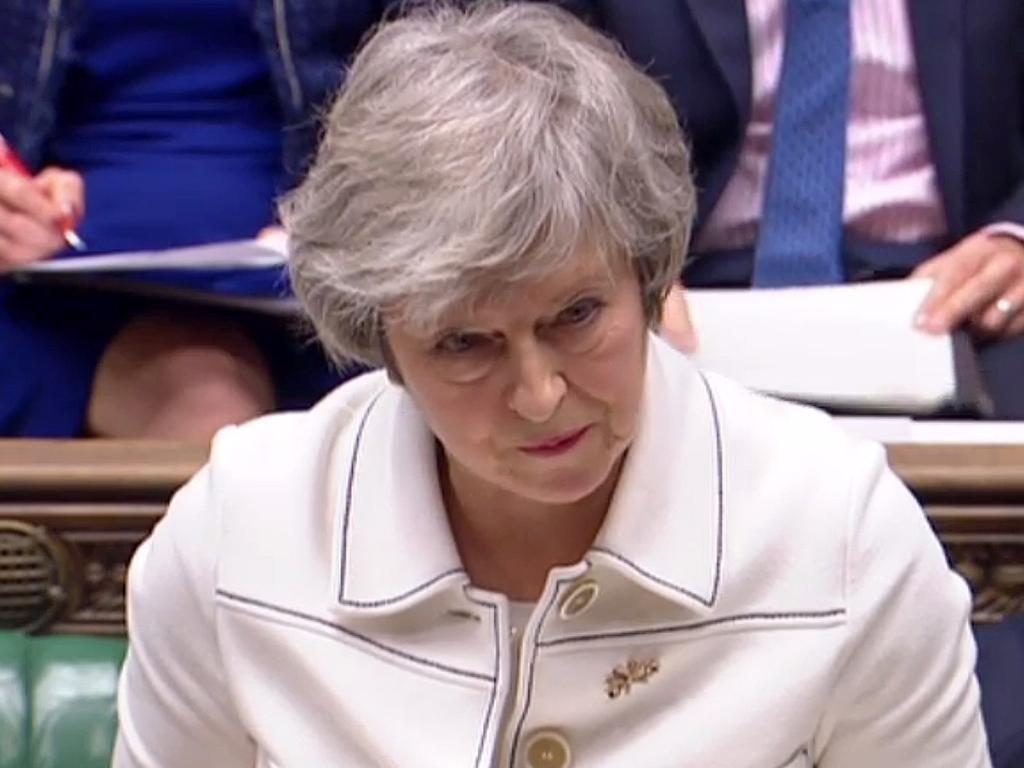
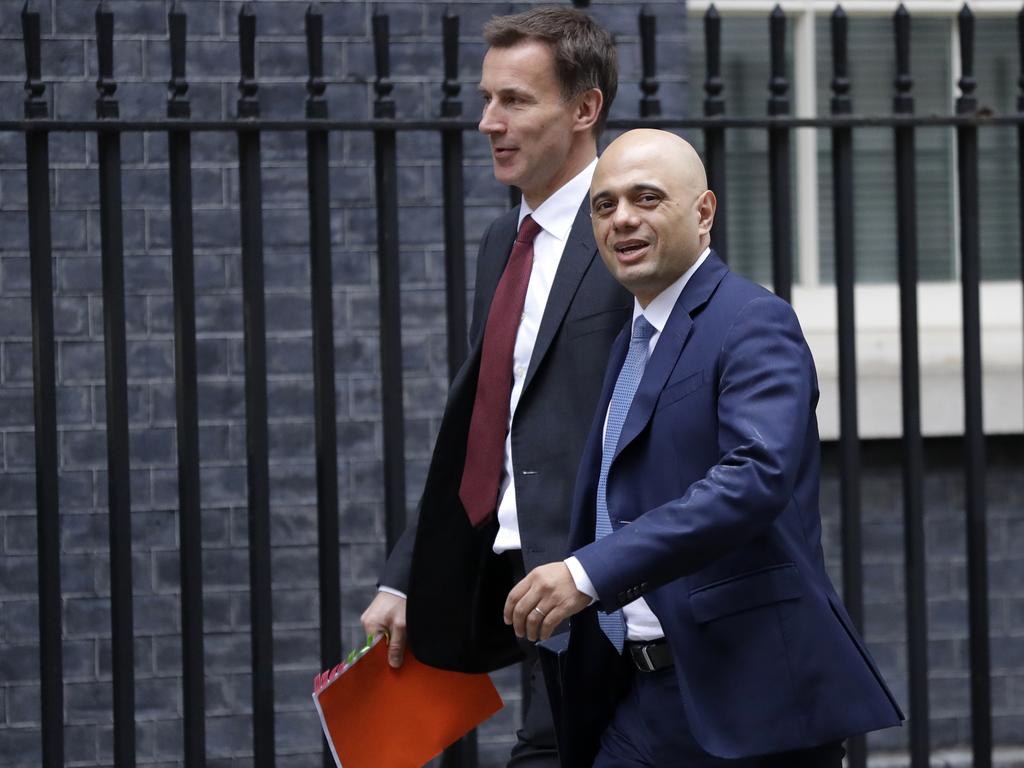
To add to her woes, the Labour opposition is planning a no-confidence vote on Wednesday that, although she is expected to survive, would expose her fragile hold on power.
On Monday she made a last-ditch attempt to sell her plan as MPs and the country brace for it to be rejected — and the havoc that could then follow.
It’s led to MPs resorting to desperate tactics, including one treasury minister who was photographed leaving a high-level government meeting holding a note bearing the words “no food”.
Mel Stride, the MP photographed holding the worrying note, insisted the list was “entirely accidental” and were simply things recently raised in the media.
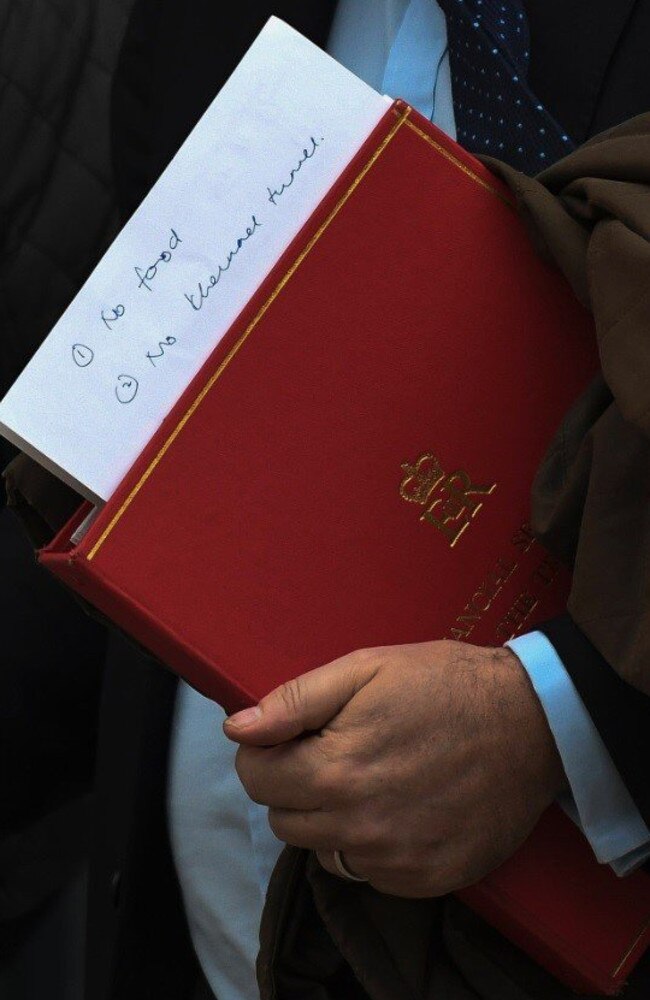
Critics say it was a deliberate tactic to force ministers into accepting Ms May’s controversial Brexit deal while government aides said it was purely accidental and were instead a list of topics officials were seeking to debunk.
Labour MP Jo Stevens, a leading supporter of the Best for Britain campaign for a second referendum, lashed the obvious note.
“The Government clearly know the harm a no-deal Brexit would cause, so it’s shameful they’re still using the no-deal threat to scare MPs into backing the Prime Minister’s bad deal,” Ms Stevens said.
“She’s basically trying to hold the people of this country to ransom in order to stay in power.”
Outspoken Brexiteer MP Michael Fabricant joked it had been set up.
If ever there were a set up photo, this is one!!
— Michael Fabricant (@Mike_Fabricant) January 14, 2019
A minister "accidentally" reveals a note about #Brexit.
Desperate stuff. pic.twitter.com/vhPX7fam6r
Ms May and senior ministers in her minority government know the divorce deal she has negotiated with the European Union won’t be approved by the House of Commons. With time running out for any credible alternative, and parliament so badly divided that no option can seemingly muster a majority, Britain faces uncertain times. Will the country leave the EU on March 29? On what terms? And what will the consequences be? Will the PM or her government survive?
MPs will vote on whether they accept the deal of the so-called divorce which marks their departure from the EU. It makes provision for the rights of each other’s citizens, and most importantly allows for a transition period until December 2020 where things essentially stay the same.
That is to ensure there is a period of stability immediately after Brexit day which would allow the UK and EU to thrash out a trade deal and decide the details of their future relationship, which also includes movement between the two and security issues.
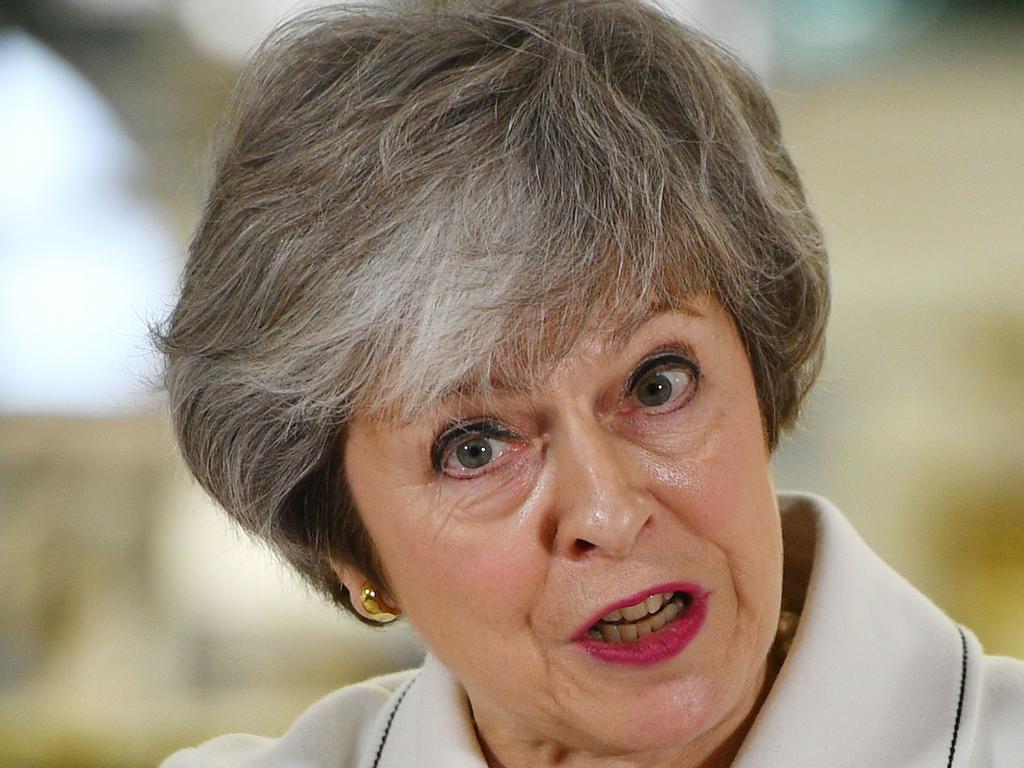
It includes the so-called backstop that will come into play if a new partnership is not signed and delivered by December 2020. It is controversial because it locks the UK, which includes Northern Ireland, into a customs union with the EU. That would allow frictionless trade between the UK and EU, and avoid a hard border with the Republic of Ireland, but it would prevent the UK striking new trade deals of its own.
An under-pressure Ms May warned the only alternatives to her agreement were a damaging, chaotic “no-deal” exit from the EU or a halt to Britain’s departure that would overturn what British voters decided in 2016.
Mrs May warned colleagues in overnight talks that failing to back her deal risked handing
Jeremy Corbyn and Labour the keys to Number 10.
The Environment Minister Michael Gove had earlier warned MPs against holding out for the perfect deal, likening obstructionists to “mid-50s swingers’’ waiting for attractive Hollywood star Scarlett Johansson to show up to a party.
Mrs May echoed this sentiment in a speech in the strongly Leave-voting area of Stoke-on-Trent, albeit it much less colourful language.
“Nobody has yet come up with an alternative Brexit deal that is negotiable and that delivers on the result of the referendum,’’ she said.
“The only deal on the table is the one MPs will vote on tomorrow night.’’
The Prime Minister urged MPs to give the deal “a second look’’.
“No, it is not perfect. And yes, it is a compromise,’’ she said.
“But when the history books are written, people will look at the decision of this House tomorrow and ask: Did we deliver on the country’s vote to leave the European Union? Did we safeguard our economy, our security and our Union? Or did we let the British people down?’’
BREXIT EXPLAINED
What is Article 50?
Article 50 is a plan for any country wishing to exit the European Union.
It sets out that any EU member who wants to go must notify the European Council and negotiate its withdrawal with the EU, in two years, unless everyone agrees to extend it.
What is a soft vs hard Brexit?
A “hard” Brexit could involve the UK refusing to agree with the EU on issues like the free movement of people, even if it meant leaving the single market or abandoning aspects of free trade arrangements. A “soft” Brexit might follow a similar path to Norway, which is a member of the single market and has to accept the free movement of people as a result of that. Many pro-Brexit Brits believe Ms May’s deal is closer to a soft Brexit than a hard one.
What is the single market?
The European Union single market, completed in 1992, allows the free movement of goods, services, money and people within the European Union, as if it was a single country. It is possible to set up a business or take a job anywhere within it. It requires common law-making to ensure products are made to the same technical standards and imposes other rules to ensure products are produced in a similar way with a level playing field for producers.
What is the customs union?
The customs union means EU countries all charge the same import duties to countries outside the EU, such as Australia. It allows members to trade freely with each other, without costly customs checks at borders. They cannot make free trade deals of their own.
It is different from a free trade area because in that situation members are free to strike their own external trade deals.
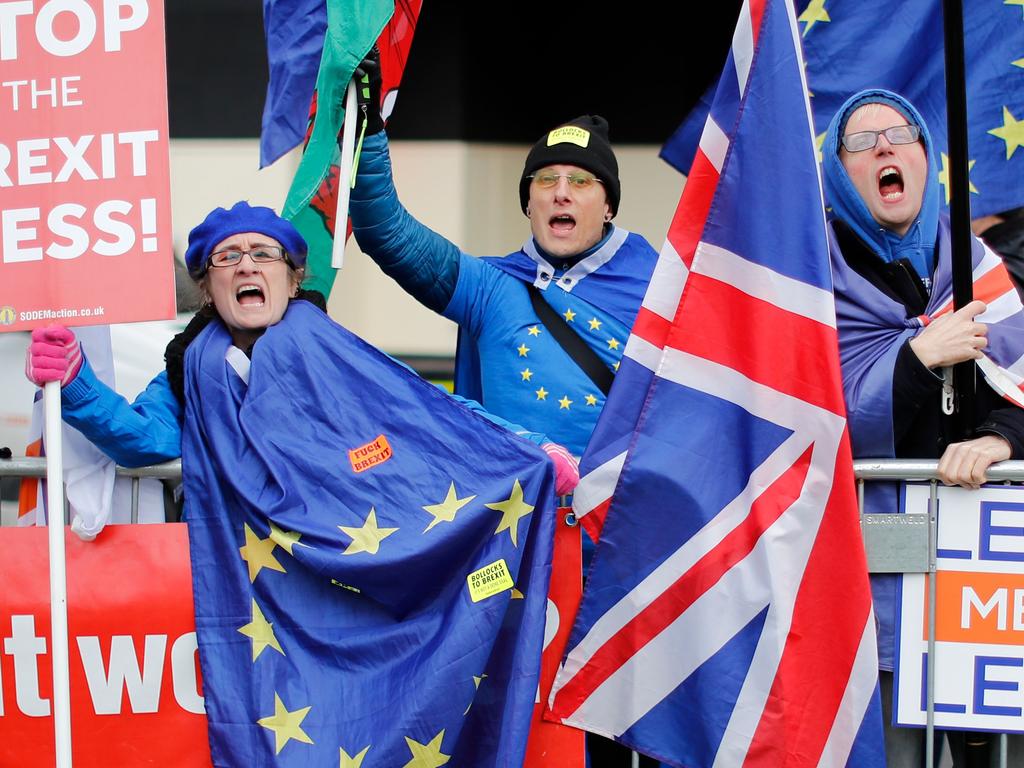
MPs EU FEARS
Many pro-Brexit Brits fear they will never be able to break free from the customs union, because it would not have an end date and the UK would need the agreement of the EU, who they deeply distrust, to leave.
It was on these points that the Prime Minister tried to reassure colleagues and the country on Monday when she released a letter from European Union leaders.
European Council President Donald Tusk and European Commission President Jean-Claude Juncker promised the backstop “would only be in place for as long as strictly necessary” and vowed to work quickly to strike a permanent new trade deal that would render the backstop unnecessary.
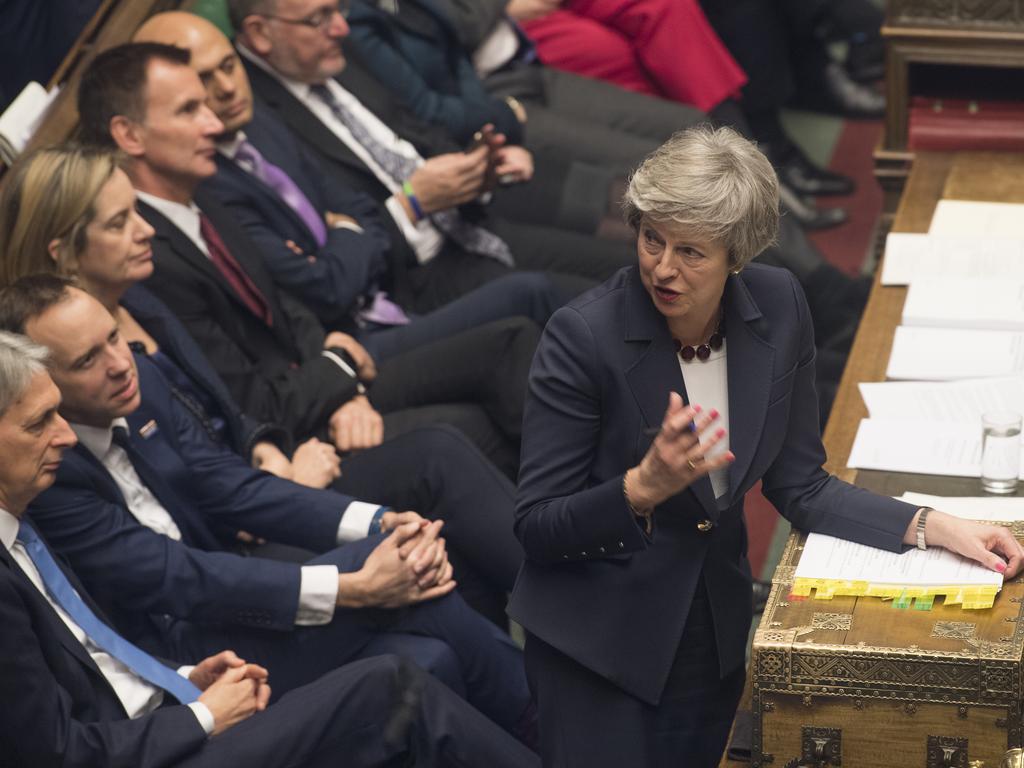
But they refused to renegotiate the deal and, as opponents to it noted, their assurances were not legally binding.
If her deal is rejected, she has until next week to come back to parliament with a new proposal. Even those close to her claim to be in the dark as to what that could be.
That’s if she is even in a position to do so — she may quit, or face another wave of resignations.
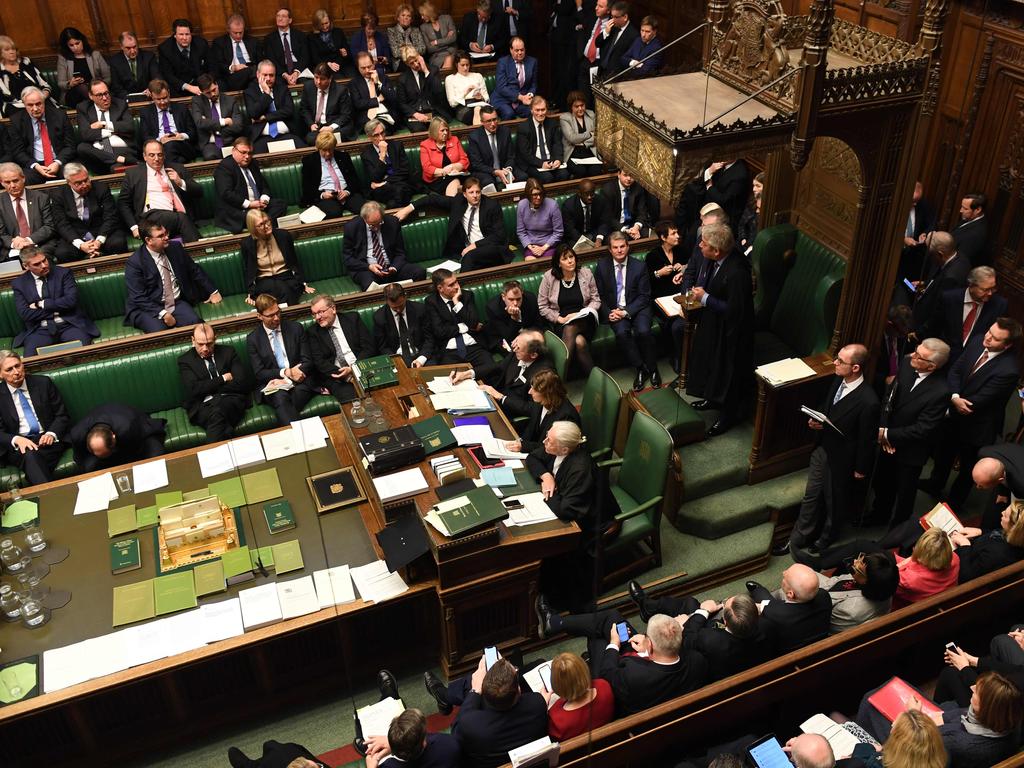
So far she has refused publicly to speculate on a possible “Plan B”. Some MPs are reportedly exploring ways to use parliamentary procedures to seize control of the Brexit process from the government so they could vote for a new plan.
That has the real risk of plunging the country into constitutional crisis, and even if it succeeds
there is no clear majority in parliament for any single alternate course.
That could mean Britain could try to postpone its departure from the EU, a move many see would be the ultimate humiliation.
— with Associated Press

